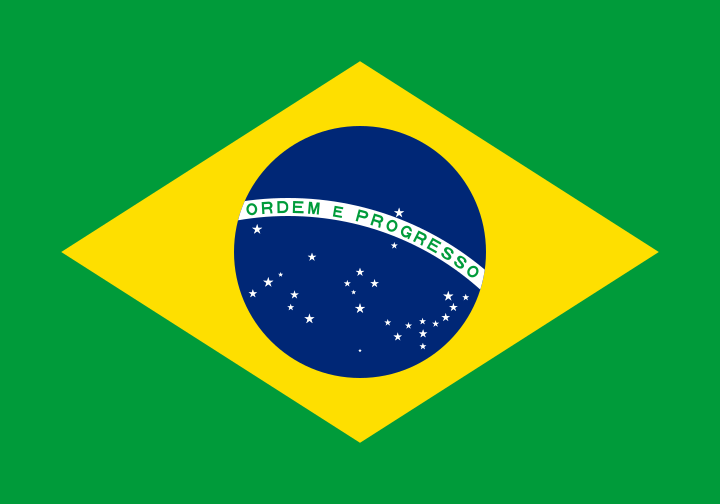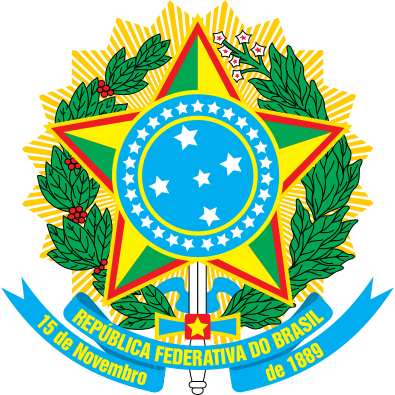Difference between revisions of "Adopting from Brazil"
(→Traveling Abroad) |
|||
| (4 intermediate revisions by the same user not shown) | |||
| Line 14: | Line 14: | ||
{{#eimage:http://upload.wikimedia.org/wikipedia/commons/thumb/f/fc/Iguassu_falls_rainbow.jpg/800px-Iguassu_falls_rainbow.jpg|410x579px|thumb|'''Iguassu Falls.'''<BR/>Source: Wikipedia.org.}} | {{#eimage:http://upload.wikimedia.org/wikipedia/commons/thumb/f/fc/Iguassu_falls_rainbow.jpg/800px-Iguassu_falls_rainbow.jpg|410x579px|thumb|'''Iguassu Falls.'''<BR/>Source: Wikipedia.org.}} | ||
| + | |||
'''Notice: As of July 14, 2014, all individuals and agencies facilitating [[international]] adoptions must be in compliance with the Intercountry [[Universal Accreditation Act]].''' | '''Notice: As of July 14, 2014, all individuals and agencies facilitating [[international]] adoptions must be in compliance with the Intercountry [[Universal Accreditation Act]].''' | ||
| − | + | The information contained on this website is for educational purposes only and is not intended to be a substitute for professional legal advice. Always seek the advice of a licensed and qualified professional. While the content of this website is frequently updated, information changes rapidly and therefore, some information may be out of date, and/or contain inaccuracies, omissions or typographical errors. | |
| − | |||
=About Brazil= | =About Brazil= | ||
Following more than three centuries under Portuguese rule, [[Brazil]] gained its independence in 1822, maintaining a monarchical [[system]] of government until the abolition of slavery in 1888 and the subsequent proclamation of a republic by the military in 1889. To learn more, read [[About Brazil]]. | Following more than three centuries under Portuguese rule, [[Brazil]] gained its independence in 1822, maintaining a monarchical [[system]] of government until the abolition of slavery in 1888 and the subsequent proclamation of a republic by the military in 1889. To learn more, read [[About Brazil]]. | ||
| + | |||
| + | |||
| + | =Brazil Adoption Alert= | ||
| + | |||
| + | (July 28, 2014) The Autoridade Central Administrativa Federal of the Secretaria de Direitos Humanos (ACAF), the Brazilian Central Authority for the Hague [[Adoption]] Convention, officially announced last week that it will accept applications from U.S. Hague accredited [[adoption]] service providers (ASPs) for authorization to provide intercountry [[adoption]] services in [[Brazil]]. To learn more, read [[Brazil Adoption Alert]]. | ||
| + | |||
=Hague Convention Information= | =Hague Convention Information= | ||
[[Brazil]] is party to the Hague Convention on Protection of Children and Co-operation in Respect of Intercountry [[Adoption]] ([http://adoption.state.gov/hague_convention/overview.php Hague Adoption Convention] ). Therefore, all adoptions between [[Brazil]] and the United States must meet the requirements of the Convention and U.S. law implementing the Convention. To learn more, read [[Brazil and the Hague Convention]]. | [[Brazil]] is party to the Hague Convention on Protection of Children and Co-operation in Respect of Intercountry [[Adoption]] ([http://adoption.state.gov/hague_convention/overview.php Hague Adoption Convention] ). Therefore, all adoptions between [[Brazil]] and the United States must meet the requirements of the Convention and U.S. law implementing the Convention. To learn more, read [[Brazil and the Hague Convention]]. | ||
| + | |||
=Who Can Adopt= | =Who Can Adopt= | ||
[[Adoption]] between the United States and [[Brazil]] is governed by the Hague [[Adoption]] Convention. Therefore to [[adopt]] from [[Brazil]], you must first be found eligible to [[adopt]] by the U.S. Government. The U.S. Government agency responsible for making this determination is the Department of Homeland Security, U.S. Citizenship and Immigration Services (USCIS). To learn more, read about [[Who Can Adopt from Brazil]]. | [[Adoption]] between the United States and [[Brazil]] is governed by the Hague [[Adoption]] Convention. Therefore to [[adopt]] from [[Brazil]], you must first be found eligible to [[adopt]] by the U.S. Government. The U.S. Government agency responsible for making this determination is the Department of Homeland Security, U.S. Citizenship and Immigration Services (USCIS). To learn more, read about [[Who Can Adopt from Brazil]]. | ||
| + | |||
=Who Can Be Adopted= | =Who Can Be Adopted= | ||
| Line 45: | Line 53: | ||
Because [[Brazil]] is party to the Hague [[Adoption]] Convention, adopting from [[Brazil]] must follow a specific process designed to meet the Convention's requirements. A brief summary of the Convention [[adoption]] process is given below. You must complete these steps in the following order to meet all necessary legal requirements for [[adoption]]. [[Adoption]] is granted as an exceptional measure and is irrevocable; proxy [[adoption]] is prohibited. To learn more, read about [[How to Adopt from Brazil]]. | Because [[Brazil]] is party to the Hague [[Adoption]] Convention, adopting from [[Brazil]] must follow a specific process designed to meet the Convention's requirements. A brief summary of the Convention [[adoption]] process is given below. You must complete these steps in the following order to meet all necessary legal requirements for [[adoption]]. [[Adoption]] is granted as an exceptional measure and is irrevocable; proxy [[adoption]] is prohibited. To learn more, read about [[How to Adopt from Brazil]]. | ||
| + | |||
=Traveling Abroad= | =Traveling Abroad= | ||
| Line 50: | Line 59: | ||
'''Applying for Your U.S. Passport''' | '''Applying for Your U.S. Passport''' | ||
| − | A valid U.S. passport is required to enter and leave [[Brazil]]. Only the U.S. Department of State has the authority to grant, issue, or verify U.S. passports. Getting or renewing a passport is easy. The [ | + | A valid U.S. passport is required to enter and leave [[Brazil]]. Only the U.S. Department of State has the authority to grant, issue, or verify U.S. passports. Getting or renewing a passport is easy. The [https://travel.state.gov/content/travel/en/passports/passport-help.html |
| + | Passport Application Wizard] will help you determine which passport form you need, help you to complete the form online, estimate your payment, and generate the form for you to print-all in one place. Learn more about [[Traveling Abroad in Brazil]] | ||
=After Adoption= | =After Adoption= | ||
| Line 81: | Line 91: | ||
| − | + | =Contact Information= | |
| Line 204: | Line 214: | ||
==SOURCE== | ==SOURCE== | ||
| − | '''Intercountry [[Adoption]], Bureau of Consular Affairs. U.S. Department of State Country Information'''[ | + | '''Intercountry [[Adoption]], Bureau of Consular Affairs. U.S. Department of State Country Information''' [[adoption]].state.gov/country_information/country_specific_info.php?country-select=[[brazil]] |
[[Category: International Adoption]] | [[Category: International Adoption]] | ||
Latest revision as of 06:20, 1 July 2021
Notice: As of July 14, 2014, all individuals and agencies facilitating international adoptions must be in compliance with the Intercountry Universal Accreditation Act.
The information contained on this website is for educational purposes only and is not intended to be a substitute for professional legal advice. Always seek the advice of a licensed and qualified professional. While the content of this website is frequently updated, information changes rapidly and therefore, some information may be out of date, and/or contain inaccuracies, omissions or typographical errors.
Contents
About Brazil
Following more than three centuries under Portuguese rule, Brazil gained its independence in 1822, maintaining a monarchical system of government until the abolition of slavery in 1888 and the subsequent proclamation of a republic by the military in 1889. To learn more, read About Brazil.
Brazil Adoption Alert
(July 28, 2014) The Autoridade Central Administrativa Federal of the Secretaria de Direitos Humanos (ACAF), the Brazilian Central Authority for the Hague Adoption Convention, officially announced last week that it will accept applications from U.S. Hague accredited adoption service providers (ASPs) for authorization to provide intercountry adoption services in Brazil. To learn more, read Brazil Adoption Alert.
Hague Convention Information
Brazil is party to the Hague Convention on Protection of Children and Co-operation in Respect of Intercountry Adoption (Hague Adoption Convention ). Therefore, all adoptions between Brazil and the United States must meet the requirements of the Convention and U.S. law implementing the Convention. To learn more, read Brazil and the Hague Convention.
Who Can Adopt
Adoption between the United States and Brazil is governed by the Hague Adoption Convention. Therefore to adopt from Brazil, you must first be found eligible to adopt by the U.S. Government. The U.S. Government agency responsible for making this determination is the Department of Homeland Security, U.S. Citizenship and Immigration Services (USCIS). To learn more, read about Who Can Adopt from Brazil.
Who Can Be Adopted
Because Brazil is party to the Hague Adoption Convention, children from Brazil must meet the requirements of the Convention in order to be eligible for adoption. For example, the Convention requires that Brazil attempt to place a child with a family in-country before determining that a child is eligible for intercountry adoption. In addition to Brazil's requirements, a child must meet the definition of a Convention adoptee for you to bring him or her back to the United States.
- 1. Children over the age of 12 will have to agree to their adoption.
- 2. Extended family and other immediate relatives will have priority to adopt a child.
How to Adopt
Because Brazil is party to the Hague Adoption Convention, adopting from Brazil must follow a specific process designed to meet the Convention's requirements. A brief summary of the Convention adoption process is given below. You must complete these steps in the following order to meet all necessary legal requirements for adoption. Adoption is granted as an exceptional measure and is irrevocable; proxy adoption is prohibited. To learn more, read about How to Adopt from Brazil.
Traveling Abroad
Applying for Your U.S. Passport
A valid U.S. passport is required to enter and leave Brazil. Only the U.S. Department of State has the authority to grant, issue, or verify U.S. passports. Getting or renewing a passport is easy. The [https://travel.state.gov/content/travel/en/passports/passport-help.html Passport Application Wizard] will help you determine which passport form you need, help you to complete the form online, estimate your payment, and generate the form for you to print-all in one place. Learn more about Traveling Abroad in Brazil
After Adoption
What does Brazil require of the adoptive parents after the adoption?
According to Brazilian law, there are post-adoption requirements of adoptive parents. Adoptees may have access to their background records after the age of 18; before the age of 18 access to background records is only granted with judicial approval.
Post-adoption requirements:
- 1. Brazilian legislation requires ASPs to send post-adoption follow-up reports to CEJA and ACAF on the adopted children every six months for up to two years after the adoption is granted and/or until the child gets the naturalization certificate; they suggest that PAPs sign a document releasing their privacy act so that Brazilian authorities could be informed about the child's progress and adjustment to the new family;
- 2. ACAF may also request ASPs information about an adopted child at any moment and ASPs need to send a copy of the child's naturalization certificate as soon as it is issued to ACAF.
What resources are available to assist families after the adoption?
Many adoptive parents find it important to find support after the adoption. Take advantage of all the resources available to your family -- whether it's another adoptive family, a support group, an advocacy organization, or your religious or community services.
Here are some good places to start your support group search:
Adoption Services Support Groups for Adopting Persons
North American Council on Adoptable Children
NOTE: Inclusion of non-U.S. Government links does not imply endorsement of contents.
Contact Information
U.S. Consulate in Rio de Janeiro
Avenida Presidente Wilson, 147, Castelo Rio de Janeiro RJ 20030-020 Tel: (55) (21) 3823-2000 Fax: (55) (21) 3823-2083 Email: adoptionrio@state.gov
Brazil's Central Authority:
The State Judiciary Commission of Adoption (CEJA) is the division of government responsible for intercountry adoption in Brazil. Each Brazilian state maintains a CEJA that acts as the Central Authority and is the sole organization authorized to approve foreign adopting parents. Some of the state CEJAs known to accept American prospective adoptive parents are:
Alagoas
President: Judge Paulo Zacarias da Silva Director: José Amilton Ramos Azevedo Anexo 2 - Pça Mal Deodoro, 319 Centro Macéio, AL 57061-000 Tel: (55) (82) 4009-3225
Minas Gerais
President: High Court Judge Célio César Paduani Director: High Court Judge Antonio Sérvulo dos Santos
Secretary: Eliane Maria Lacerda Gomes
Rua Gonçalves Dias, 2553 Bairro de Lourdes Belo Horizonte, MG 30140-092 Tel /Fax: (55) (31) 3339-7725 or 3339-7726 E-mail: ceja@tjmg.gov.br
Paraná
President: High Court Judge Tufi Maron Director: Jane Pereira Prestes Rua Máximo João Kopp, 274 Bl. 2 Centro Judiciário Sta. Cândida Curitiba, PR 82630-000 Tel/Fax: (55) (41) 3233-3518 or 3225-6044 E-mail: adoção@tj.pv.br
Pernambuco
President: High Court Judge José Ferandes de Lemos Director: Humberto Costa de Vasconcelos Junior Rua Joao Fernandes Vieira, 405 1 st Floor - Boa Vista Recife, PE 50050-200 Tel/Fax: (81) 3412-3020 or 3412-3053
Rio de Janeiro
President: High Court Judge Conceição Mousnier Director: Maria da Glória Moreira Correa Rua Erasmo Braga, 115 - 5th floor, Room 512 - Lâmina 1 Entrance at Rua D. Manuel - Edifício do Fórum, Centro Rio de Janeiro, RJ 20026-900 Tel: (55) (21) 3133-2656 Fax: (55) (21) 3133-2657 E-mail: ceja@tj.rj.gov.br
Santa Catarina
President: High Court Judge José Trindade dos Santos Director: Mery-Ann Furtado e Silva Rua "lvaro Millen da Silveira, 208, 8 0 andar Edifício Tribunal Justiça Centro, Florianópolis, SC 88020-901 Tel: (55) (48) 3287-2738 Fax: (55) (48) 3287-2758 E-mail: ceja@tj.gov.br
São Paulo
President: High Court Judge Antonio Luiz Reis Kuntz Director: Judge Raul Khairallah de Oliveira e Silva Fórum Dr. João Mendes Junior - Pça João Mendes Junior, s/n 0, 20 0 Floor, Room 2021/2023 São Paulo, SP 01601-900 Tel: (55) (11) 2171-6304 or 2171-6305 Fax: (55) (11) 2171-6514 E-mail: cejaisp@tj.sp.gov.br
Embassy of Brazil:
Brazilian Embassy 3006 Massachusetts Avenue, NW Washington, DC 20008 Tel: (202) 238-2700 Fax: (202) 238-2827
NOTE: Brazilian Consulates are located in Boston, Chicago, Houston, Los Angeles, Miami, New York, and San Francisco.
Office of Children's Issues
U.S. Department of State CA/OCS/CI SA-17, 9th Floor Washington, DC 20522-1709 Tel: 1-888-407-4747 Email: AskCI@state.gov U.S. Department of State
U.S. Citizenship and Immigration Services (USCIS)
For questions about immigration procedures, contact the National Customer Service Center (NCSC) at 1-800-375-5283 (TTY 1-800-767-1833).
SOURCE
Intercountry Adoption, Bureau of Consular Affairs. U.S. Department of State Country Information adoption.state.gov/country_information/country_specific_info.php?country-select=brazil







